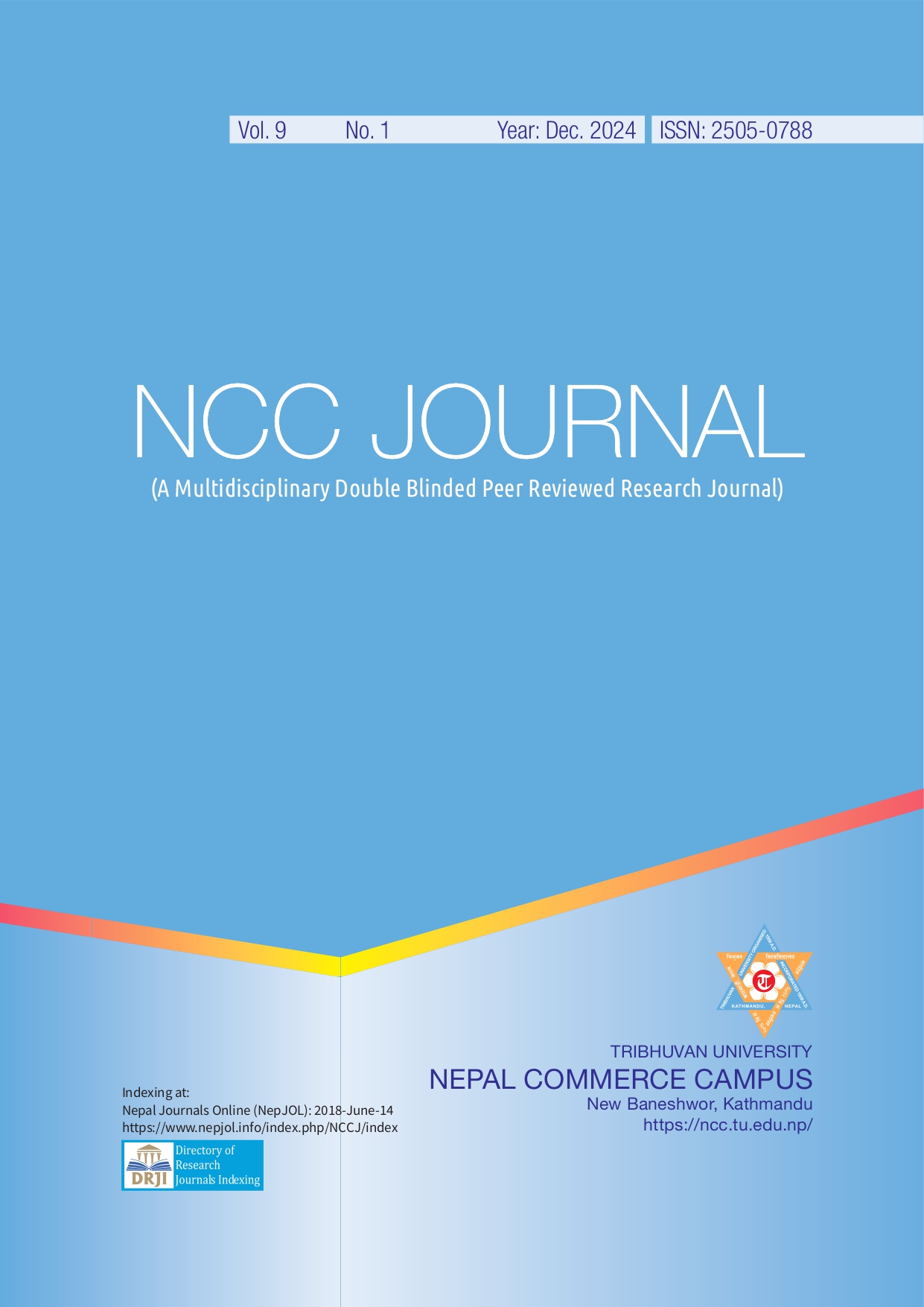Behavioral Intentions and Academic Outcomes of Using Social Media in Nepalese Higher Education
DOI:
https://doi.org/10.3126/nccj.v9i1.72243Keywords:
Academic Performance, Collaboration for Learning, Interaction for Learning, Perceived Ease of Use, Perceived Enjoyment, Perceived UsefulnessAbstract
The purpose of this study was to close the knowledge gaps about how college students’ use of social media impacts their capacity for cooperation and communication. To gather data, 250 university students were given a questionnaire survey on constructivism theory, technology acceptance model, and communication theory. Even though male students were not entirely satisfied with peer contact for collaborative learning, the behavioral intention results of students to use social media for online communication and collaborative learning reveal a beneficial effect on their academic efforts in higher education institutions. As a result, we need to have urged students to use social media for learning through their instructors at universities. Master’s degree students are less in agreement with the performance improvements made by social media. According to the study, social media and cooperative learning enhance student learning activities and enable them to exchange ideas, information, and expertise.
Downloads
Downloads
Published
How to Cite
Issue
Section
License

This work is licensed under a Creative Commons Attribution-NonCommercial 4.0 International License.
© Nepal Commerce Campus, Tribhuvan University
CC BY-NC: This license enables reusers to distribute, remix, adapt, and build upon the material in any medium or format for noncommercial purposes only, and only so long as attribution is given to the creator.




